Nebraska Math and Science Summer Institutes
The goal of the Nebraska Math and Science Summer Institutes is to offer teachers of math and science intellectually rich graduate coursework that will enhance their ability to offer their students challenging courses and curricula. NMSSI courses are designed with teachers' schedules in mind. NMSSI courses will be offered utilizing several instructional models that will support teachers in different ways. Some will be traditional online courses (i.e., asynchronous) offered over a five- or eight-week summer session. Others will use a live or synchronous approach, with most or all instruction concentrated during a two-week period.
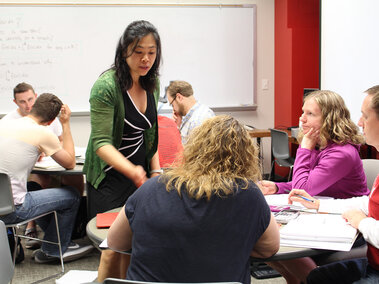
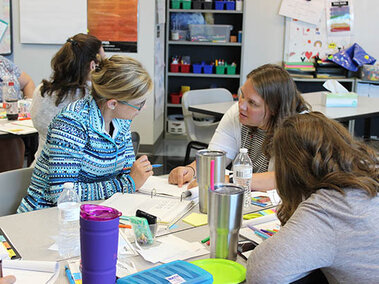
Primarily Math
Primarily Math is the story of outstanding Nebraska elementary teachers who have accepted the challenge to return to graduate school to study mathematics and the teaching of mathematics. It is also a story of the faculty and graduate students at the University of Nebraska–Lincoln who are engaging in research to help us learn more about the potential of programs such as Primarily Math to impact the achievement of young children as they begin their journey from the first day of kindergarten to high school graduation. Courses during the first summer are held in July and then in June the second summer so that all 18 credits are eligible to be listed on one EETPloan forgiveness application for this graduate certificate program.
Noyce Master Teaching Fellows Program
Dr. Beth Lewis, science education professor in the Department of Teaching, Learning and Teacher Education and senior advisor in the CSMCE, leads this UNL Noyce Master Teaching Fellows Project to: (1) mentor exceptional secondary science teachers to become science education leaders in Nebraska through rigorous PD; (2) improve science teacher leadership and science education in Nebraska by developing and supporting Noyce Master Teacher Fellows' (MTFs') capacity to provide new and experienced science teachers with professional development to promote inquiry-based science teaching practices; (3) improve the sustainability of the state-wide network of science teachers to facilitate regular and improved access to professional peer support and PD resources; and (4) investigate the activities and emergence of effective teacher leaders through rigorous research.
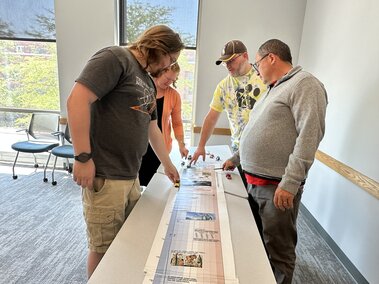
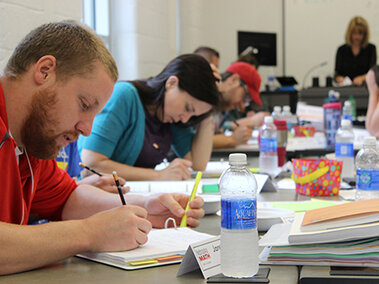
Math in the Middle
Designed for teachers who teach math in grades 4-8, Math in the Middle supports a cohort of teachers who work together as they participate in a 36-hour graduate program leading to a Master of Arts for Teachers (MAT) degree from the University of Nebraska-Lincoln’s (UNL) Department of Mathematics. Since Math in the Middle began in 2004 with support from the National Science Foundation, over 300 teachers have earned a master’s degree from UNL as part of Math in the Middle.
ITEAM
Intermediate TEAchers of Mathematics (ITEAM) is a unique opportunity for outstanding Nebraska elementary and middle-school teachers willing to accept the challenge of returning to graduate school to study mathematics and the teaching of mathematics. Faculty and graduate students at the University of Nebraska–Lincoln also are engaging in research to help us learn more about the potential of programs such as ITEAM to impact the mathematical achievement of children from elementary through high school.
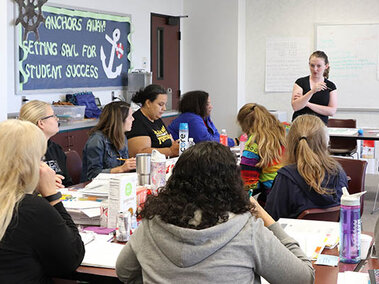

AIR@NE
This is a NSF-funded grant that examines the adaptation and implementation of a validated K-8 Computer Science curriculum in diverse school districts. The grant expands the Research-Practitioner Partnership between the University of Nebraska-Lincoln and Lincoln Public Schools (LPS) to other districts across Nebraska. The primary goal is to study how districts facing different contextual challenges, including rural schools, majority-minority schools, and Native American reservation schools, adapt the curriculum to fit local needs and strengths to broaden participation in computer science.